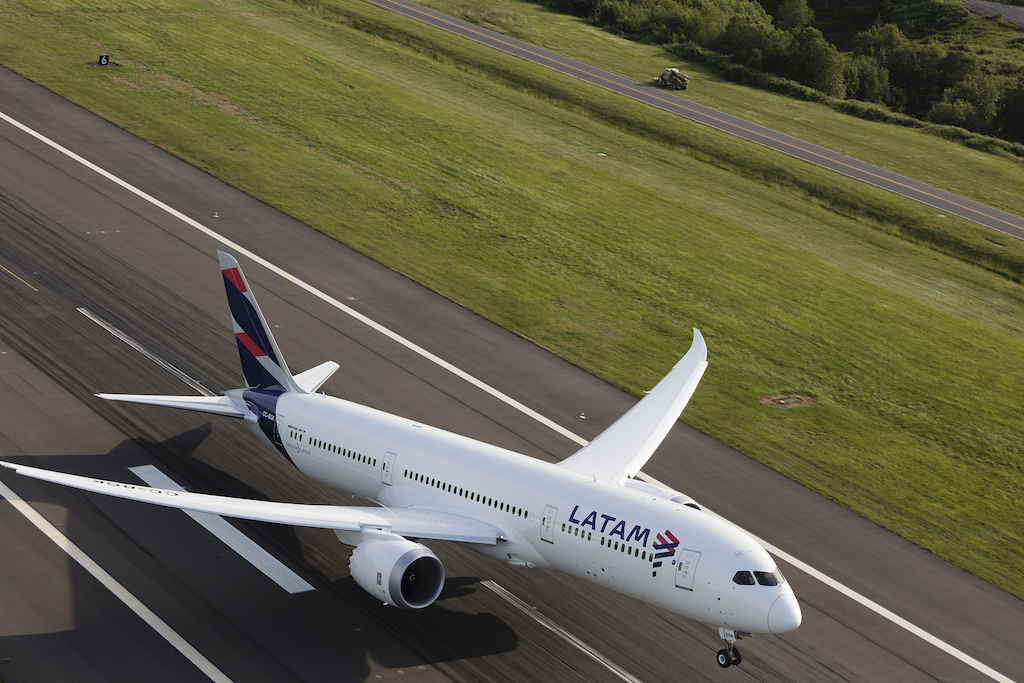RIO DE JANEIRO, BRAZIL – In a sector ravaged by the coronavirus crisis, the losses of Latin American airlines have been even more significant.
Five of the region’s largest airlines – Latam Airlines, Gol, Azul, Avianca and Volaris – lost US$12 (R$60) billion in market value from late January until last Wednesday’s close of trading. These companies’ stocks declined 78 percent on average in local currency, more than all 23 Bloomberg World Airlines index components. The global indicator has undergone a 45 percent decline in the same period.

The initial projections were that Latin American companies, operating far from China and with virtually no direct flights to Asia, would not be as affected as in other parts of the world when the coronavirus chaos began earlier this year.
Now, however, the region’s major airlines are facing the same pressure as their American and European rivals, which underscores the speed with which the crisis has impacted the whole sector.
“Investors had some hope that the region would be spared,” said Reno Bianchi, an independent airline analyst in New York. “Unfortunately, that’s not going to happen. Nobody wants to fly anywhere.”
Despite the crisis in the sector, not all airlines are in the same situation, and investors are gambling on which companies have the best chance of survival and which may be the first to crash. Panama’s Copa Holdings and Azul seem to be relatively better placed.
The market seems more jittery over Colombian Avianca, whose bond yields reached 60 percent, and Mexican Interjet, which caused a number of rental companies to feel uneasy after landing some Airbus SE aircraft.
The Gol dollar bond maturing in 2025 was traded at 35 cents on Wednesday, down from 95 cents earlier in the month.
“We are doing everything to preserve our cash flow, because tougher days are ahead,” said John Rodgerson, president of Azul, in an interview. “The government’s going to have to help in some way with credit lines to get the industry through the next 90 days.”
Brazil’s largest airlines are less exposed to international travel than their peers. Gol generates approximately 13 percent of revenue from passengers with international travel, while in Azul this portion is around 25 percent, according to Cedric Rimaud, an analyst at Gimme Credit.
Nevertheless, dependence on domestic travel exposes airlines to exchange rate fluctuations, because the main costs are tied to the dollar. The real and the Mexican peso have accumulated a 21 percent drop this year, the sharpest devaluation in emerging markets after the Russian ruble, according to data compiled by Bloomberg.
Both Azul and Gol have “suitable” liquidity to cover short-term debt, according to Moody’s. Nevertheless, corporate debt securities dropped to historic lows this week, along with the collapse of equities. Azul’s dollar bond maturing in 2024 fell to 41 cents from 99 cents just two weeks ago.
Latam cut 90 percent of international flights and reduced domestic capacity by 40 percent. The airline is facing the crisis with plenty of cash, approximately US$1.5 billion, to cover approximately US$1 billion in short-term maturities, according to Moody’s.
How long?
For the region’s areas, it is a question of how long the crisis will last. Overall, the coronavirus pandemic is expected to lead most airlines to file for judicial reorganization by the end of May, unless governments and the industry take coordinated action to avert such a situation, according to a report by the CAPA Centre for Aviation this week.
For now, Latin American authorities, which are already facing the effects of the slowdown in the global economy, are showing little interest in rescuing airlines.
“It is difficult to estimate how long the lock-down will last and when coronavirus cases will peak in Brazil and Latin America. Personnel and rental costs will continue, but airlines are reducing capacity,” said Marcelo Cavalheiro, Safari Capital’s founding partner. “The companies are doing everything they can, but the situation is very complex.”

